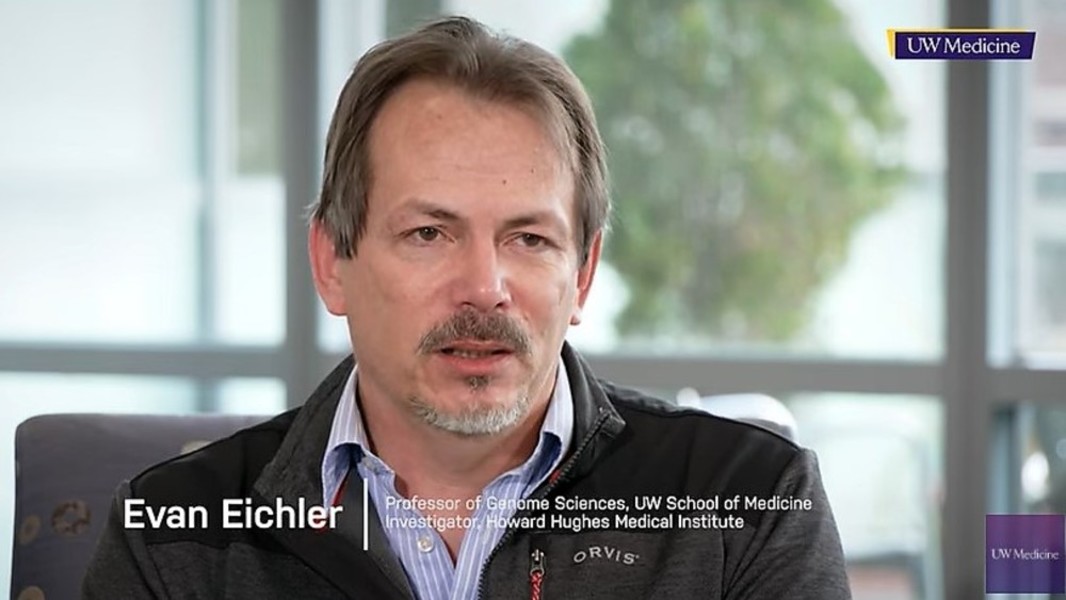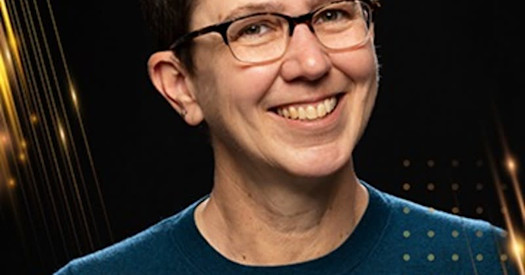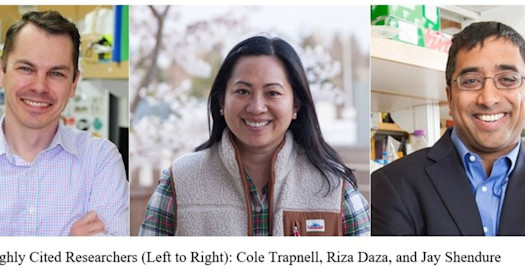 Dr. Evan Eichler
Dr. Evan Eichler
BBI’s Dr. Evan Eichler has been named to the 2022 TIME100, the magazine’s annual list of the hundred most influential people over the past year.
Eichler is a professor of genome sciences at the University of School of Medicine and a Howard Hughes Medical Institute Investigator. He and the multi-university research group of Drs. Karen Miga, Adam Phillipy, and Michael Schatz were honored together as a team in the magazine’s Innovation category.
They are credited with leading the recent effort to complete a gapless human reference genome. The achievement was published in Science April 1, along with a series of scientific papers analyzing different aspects of the finished genome.
The work was the culmination of a large consortium, the Telomore-to-Telomere orT2T, which aimed to complete sequences of all 23 human chromosomes, end-to-end. A TIME tribute to the project team was written by Dr. Jennifer Doudna, the 2020 Nobel Laureate in Chemistry recognized for her work on CRISPR-Casp gene editing. She pointed out the significance of their recent achievement in advancing understanding of human evolution, common and rare diseases, and the structure and function of the human genome.
“I admire the T2T group’s willingness to grapple with the technical demands of this project and their persistence in expanding the genome map into uncharted territory,” Doudna wrote. “The complete human genome sequence is an invaluable resource that may provide new insights into the origin of diseases and how we can treat them. It also offers the most complete look yet at the genetic script underlying the very nature of who we are as human beings."
Eichler’s lab and his graduate students, alongside their work on the overall human genome completion project, contributed to advances in gene sequencing technology and analytics that allowed scientist to delve into difficult to decipher areas of the human genome. These regions were found to contain new information about what makes us distinctly human, in comparison to other primates. Their findings also provided insights into primate evolution. Other T2T studies in his lab are clarifying the structure and function of centromeres, which are critical for the accurate segregation of genetic material during cell division.
Among the many intriguing findings of the Eichler lab were certain human-only areas of repeated code. These human-specific areas of segmental duplication are reservoirs for new genes that drive the formation of more neurons and increase connectivity among synapses in the frontal cortex of the brain. This is the part of the brain where reasoning, logic and language functions take place. Eichler was part of the original Human Genome Project back in 2001. He was fascinated by regions of the genome that were complex from the perspective that they were highly repetitive, but also encoded genes.
Ever since the Human Genome Project was concluded, he had an intense desire to finish those parts of the genome that were felt to be inaccessible at that time. Now, he says, is not the end, as scientists have only finished a human genome. He looks forward to the completion of other human genomes to better showcase the diversity of humanity encoded in genome variation.


